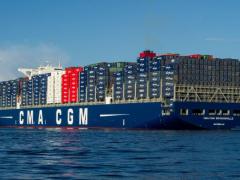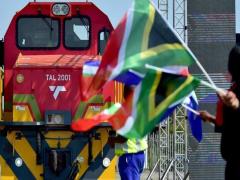Recent regulatory changes, implemented in June, have introduced new requirements for forwarders, transit warehouses, transporters, vessel agents and shipping lines operating in Mozambique, sparking substantial debate across the industry. Under these new rules, entities can no longer act as their own cargo agents and must instead appoint third-party agents to manage their cargo. The new regulations mandate the appointment of an agent for the movement of cargo within the national territory and international transit. This applies to importers, exporters, shipowners, ship operators, customs brokers, port, rail and road operators, as well as transit customs warehouse operators and charging terminals. They are now prohibited from acting as their own cargo agents. The decree further dictates that the appointed cargo agent will be responsible for tasks such as freight charter, cargo consolidation and deconsolidation, freight transport, payment of tariffs and fees as well as the issuing of guarantees for cargo in transit.Companies grappling with adjustmentsThese changes will come into effect as existing licences expire, which could happen within one to five years. The clock is ticking and many companies are grappling with the adjustments. Industry insiders argue that these changes are unlikely to benefit customers or improve trade along corridors, suggesting instead that they may favour a select few, which raises concerns for the broader logistics sector.The response to the decree has been mixed. Local companies and industry associations are generally supportive, seeing it as an opportunity for greater oversight, efficiency and increased business for domestic agents. However, foreign firms and multinational operators are frustrated, citing rising costs and operational challenges.Transit warehouses, shipping lines, transporters and manufacturers have all voiced concerns about losing the ability to manage their own cargo and being forced to engage licensed freight forwarders. Although foreign companies can still register as agents, the costs are significantly higher compared to local firms, placing an extra burden on international operators."We have invested heavily in our operations here and this decree means we are no longer protected under the investment protection act," said one source. "This has not been thought through properly and I don't see how local companies will manage this."Financial concernsSeveral industry insiders have also raised concerns about the financial capability of local freight forwarders to serve as cargo agents. For instance, securing a customs guarantee for a bulk vessel shipment can require significant transit bond guarantees, which some local freight forwarders said that they would not be able to manage and would have to break up the cargo parcels into more manageable sizes. "Local freight forwarding companies simply don't have the cash f low for these bank guarantees," another source noted. "In addition, breaking up cargo parcels is not a feasible solution. This decree has not been tested and it's going to have serious consequences."An industry insider Freight News spoke to called the situation a "fiasco", also expressing doubts about the financial readiness of local agents. "How many local agents can secure a $5-million transit bond, let alone $10 or $15m? They just don't have that kind of liquidity to operate at our level."The move has also been criticised as nothing but a form of economic nationalism. "Beyond the financial impact, we’ll all be dependent on third-party timelines," said another source. "We can secure clearance documents in less than six days, but there's no guarantee that these mandated companies will be as efficient. It will lead to major delay s."Concerns around controlConcerns also centre around control. Under the new rules, cargo agents determine where goods are consolidated or deconsolidated and who transports them. "We're no longer in control of our own logistics," one source commented. "It doesn’t make sense. Clients will no longer have faith that their cargo is controlled under one business and will look for options to move cargo to other corridors that offer a more manageable solution.”The new regulations also introduce sector-specific licences rather than a comprehensive licence that covers multiple services. Companies must now obtain separate licences for transport, ships agency, warehousing, clearing, and terminal operations, each with distinct costs based on risk value. This marks a departure from the previous system, where one licence covered all activities.All of these changes have led to significant backlash from foreign firms, who argue that the new regulations will create bottlenecks and increase costs. Shipping lines, for instance, now face costs of up to half a million dollars for specific licences - expenses they say will ultimately be passed on to customers.In contrast, local firms and industry associations view these changes as a positive step towards increasing local ownership and ensuring domestic players benefit more as cargo agents. They argue that the regulations will help curb illegal activities and keep revenue within the country. LV
Industry divided over tough new regulations
Comments | 0












